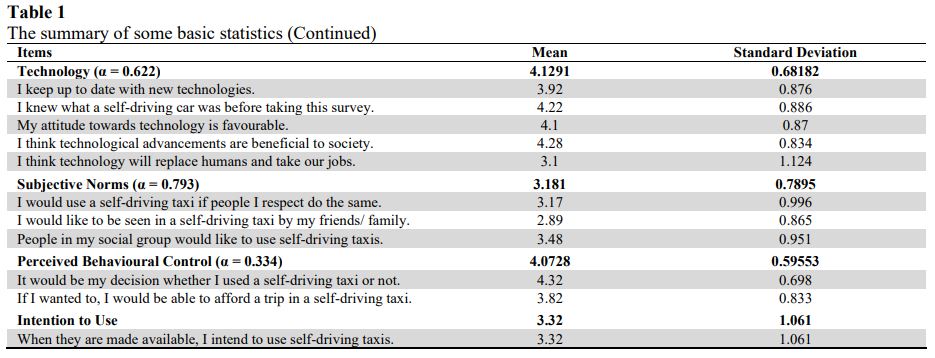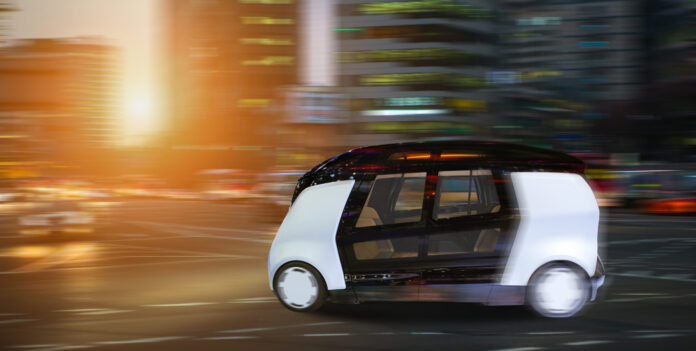A survey of Gen-Zers in the UK – born digital, come-of-age with ride hailing apps, and most comfortable, logically, with the concept of autonomous mobility – has found, indeed, that young attitudes towards autonomous vehicles are “positive”, but that safety is not clearly expected, and perceived to be less than with regular piloted vehicles. The survey by Heriot-Watt University in the UK focused on autonomous taxis, specifically, and respondents claimed ease-of-use as the big draw, over their value in terms of financial cost, road safety/risk, or environmental impact.
Almost half (“a cumulative 49.7 percent”) of respondents said they intend to use autonomous taxis; almost a quarter (“a significant 22.6 percent”) said they would not, and a little more than a quarter (27.8 percent) remain undecided. Males were more positive about the prospect of autonomous taxis, but also more polarised. More than half (53.3 percent) of males are “positive”, compared to 43.5 percent of females. But females are more likely to be “neutral” and males are more likely, also, to “very negative”, the university said.
The survey polled 18-24 year-olds to grade aspects of autonomous vehicles on a one-to-five scale, according to how strongly they agree with given statements. Attitudes towards tech, in general, were recorded as “incredibly positive”, receiving the highest mean score of 4.1291. Perceived ease-of-use produced the second highest mean response, of 4.1060. Perceived value was “slightly positive” overall, with 3.5613. Perceived safety elicited a range of responses. The most significant result was in response to the statement: ‘I think self-driving taxis will be safer than regular taxis’.

This saw the most negative mean of the study, scoring 2.81. This was due to 43 percent suggesting they ‘disagree’ or ‘strongly disagree’ with the statement and 33.1 percent unsure – only 23.8 percent responded positively. In total, 70 percent disagree that self driving taxis will be safer than regular taxis. A statement said: “This is a very important result as reducing road fatalities is one of the major anticipated benefits of autonomous vehicles and it is, therefore, significant that this sample holds opposing beliefs.” The mean response for perceived risk was 3.4062 which suggests respondents feel there will be a risk to using self-driving taxis.
A question about “subjective norms” (social influence and suggestibility) received the lowest category mean of 3.1810 – “suggesting that individuals are undecided whether social influence would play a role in their decision to use a self-driving taxi”. Perceived “behavioural control” (about autonomy around personal decision making, in the end) received a positive mean of 4.0728. A statement said: “Whilst intention-to-use received a slightly positive mean score of 3.32, this was a polarising question – shown by a standard deviation of 1.061”.


